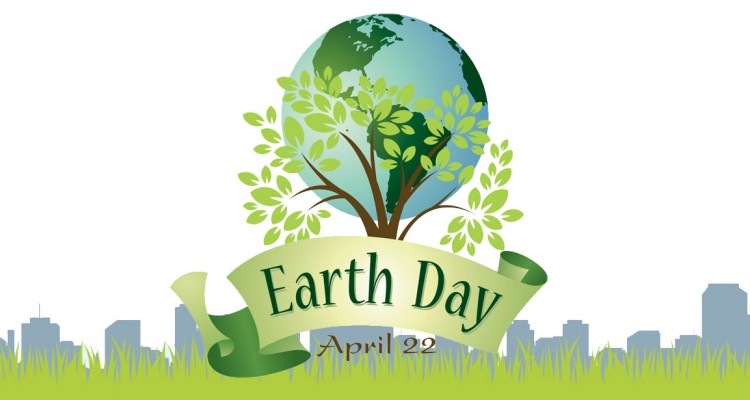The Need of the Hour?
Siddhant Agarwal
Each year, Earth Day-April 22-marks the anniversary of the birth of the modern environmental movement in 1970.
The year 1970 brought the demise of Jimi Hendrix, the last Beatles album, and Simon & Garfunkel’s “Bridge Over Troubled Water.” War raged in Vietnam and students country wide overwhelmingly opposed it. At the time, Americans were gulping leaded gas through massive V8 sedans. Industry released smoke and sludge with little fear of legal concerns or bad press. Air pollution was commonly accepted as the odor of opulence.
“Environment” was a word that appeared more often in spelling bees than on the evening news.
Earth Day 1970 gave voice to that evolving consciousness, channeling the energy of the anti-war crusade and putting environmental concerns on the front page.
In 1969 at a UNESCO Conference in San Francisco, peace activist John McConnell recommended a day to honor the Earth and the concept of peace, to first be observed on March 21, 1970, the first day of spring in the northern hemisphere. This day of nature’s equipoise was later endorsed in a Proclamation written by McConnell and signed by Secretary General U Thant at the United Nations.
A month later a separate Earth Day was initiated by United States Senator Gaylord Nelson as an environmental teach-in first held on April 22, 1970.Inspired by the student anti-war movement, he realized that if he could instill that energy with an emerging community consciousness about air and water pollution, it would force environmental protection onto the national administrative agenda. Senator Nelson broadcasted the idea for a “national teach-in on the environment” to the national media; convinced Pete McCloskey, a conservation-minded Republican Congressman, to serve as his co-chair; and enlisted Denis Hayes from Harvard as national coordinator. Hayes built a national staff of 85 to promote happenings across the country. April 22, falling between Spring Break and Final Exams, was selected as the date.
The Earth Anthem
There are many songs that are performed on Earth Day, that generally fall into two categories. Popular songs by contemporary artists not specific to Earth Day that are under copyright or new lyrics adapted to children’s songs.
UNESCO has termed Indian poet-diplomat Abhay Kumar’s idea of an official Earth Anthem as a creative and inspiring thought that would contribute to bringing the world together. Kumar’s “Earth Anthem” has been translated into eight languages including all official languages of the United Nations viz. Arabic, Chinese, English, French, Russian, Spanish. The other two languages are Hindi and Nepali. It was launched in June 2013 on the occasion of the World Environment Day by Kapil Sibal and Shashi Tharoor at a function organized by the Indian Council of Cultural Relations in New Delhi.
Our cosmic oasis, cosmic blue pearl
the most beautiful planet in the universeall the people and the nations of the world
all for one and one for allunited we unfurl the blue marble flag
black, brown, white, different colours
we are humans, the earth is our home.-Earth Anthem by Abhay K
This year, in an unusual and exceptional event, United Nations Secretary-General Ban Ki-Moon has invited every world leader to the United Nations to officially sign the Paris Climate Agreement reached this past December. It is no accident that the agreement is being released for signatures on April 22nd, Earth Day.
But just observing a day for the earth once a year is not going to solve problems. As the people inhabiting this planet, it is our foremost duty to look after the most important thing that sustains us. Merely signing treaties and having annual conferences will not check the problem. We need to do our parts in order to keep the environment we live in safe for the future generations.
In today’s world where comfort means everything, minimalistic living should be the goal that we should aim for. Blindly advocating complete abolishment of fossil fuels or banning of old vehicles in the city is not the solution, nor is putting taxes and cesses in the name of Swach Bharat Abhiyan or protection of the environment. It is time we define the optimum measures that each citizen can take to play his part in saving the ecology.
Just as we observe Car Free Days or Earth Hour by keeping a day aside for conserving energy, can we not do the same for the whole year? If we can survive without a car or minimum usage of electricity, isn’t that the message we need to put across.
Starting from the very basic steps, we need to address the issue of waste management and sanitation. Let us take a pledge to reduce the waste, reuse the things that can be reused and recycle the ones that are recyclable.
As an individual there are various steps that we can take to be a part of the change. Some of them are:
- Minimise the use of cars, try to walk or take public transport to nearby places.
- Avoid using plastic to carry things. Use a jute or cloth bag instead.
- Try to Car Pool wherever possible. Saves both fuel and money
- Segregate the wastes before disposing.
- Use electricity and water judiciously.
- Just because you can afford the bill, doesn’t mean you should be careless.
Let this Earth Day be a message to us, the responsibly irresponsible inhabitants of this planet that we need to make amends or else the life, as we know it would cease to exist. It is time we rethink our policy making and work towards a sustainable and a developed future, rather than a world where we face policy paralysis.
A budding engineer, the writer loves to spend time penning down his thoughts and reading books
(Published in The Lucknow Observer, Volume 3 Issue 25, April 2016)

